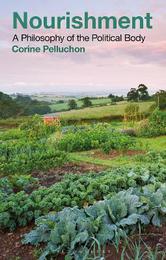
|
Nourishment: A Philosophy of the Political Body
Hardback
Main Details
Description
In her new book, Corine Pelluchon argues that the dichotomy between nature and culture privileges the latter. She laments that the political system protects the sovereignty of the human and leaves them immune to impending environmental disaster. Using the phenomenological writings of French philosophers like Emmanuel Levinas, Jacques Derrida, and Paul Ricoeur, Pelluchon contends that human beings have to recognise humanity's dependence upon the natural world for survival and adopt a new philosophy of existence that advocates for animal welfare and ecological preservation. In an extension of Heidegger's ontology of concern, Pelluchon declares that this dependence is not negative or a sign of weakness. She argues instead, that we are nourished by the natural world and that the very idea of nourishment contains an element of pleasure. This sustenance comforts humans and gives their lives taste. Pelluchon's new philosophy claims then, that eating has an affective, social and cultural dimension, but that most importantly it is a political act. It solidifies the eternal link between human beings and animals, and warns that the human consumption of animals and other natural resources impacts upon humanity's future.
Author Biography
Corine Pelluchon is Professor of Philosophy at Paris-Est-Marne-La-Vallee, France. She is author of Leo Strauss and the Crisis of Rationalism: Another Reason, Another Enlightenment (2015) which won the Francois Furet Prize. Justin E. H. Smith is Professor of History and Philosophy of Science at the University of Paris 7, Denis Diderot, France. He is a regular contributor to The New York Times, Harper's Magazine, n+1, Slate, and The Chronicle of Higher Education. Smith is also an editor-at-large of Cabinet Magazine.
ReviewsIn this original and important book, Corrine Pelluchon argues for nothing less than a new social contract that does justice to the biosphere, to all life, especially other animals, as well as human life, and to future generations. On the basis of a phenomenology of food and nourishment, she shows how freedom depends on the "love of life" and on sharing what nourishes with others. Pelluchon also takes up the practical challenge of reimagining democratic institutions to sustain this ethics of life. Anyone interested in questions of justice and environmental or food ethics should read this book. -- Mary C. Rawlinson, Professor and Director of Graduate Studies, Department of Philosophy, Stony Brook University, USA
|